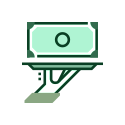 We use 256 bit SSL technology to encrypt your data.
We use 256 bit SSL technology to encrypt your data.
Over 330,000 loans approved and counting!
Security & Privacy
We use the latest technology to keep your data safe.
Fast Loan Decision
You don't have to wait for the loan you need.
Deposit Funds
We deposit your money into your checking account.
How Much Would A 1000 Payday Loan Cost
Published March 9, 2023Get Financial Relief with a 1000 Payday Loan: High Interest Rates and Fees Apply
 We�ve all been there. You�re in a tight spot and you need some extra cash. Perhaps it�s an emergency, or you�re just short on money before your next paycheck. Whatever the reason, you need to know how much it�s going to cost you to get a 1000 payday loan.
We�ve all been there. You�re in a tight spot and you need some extra cash. Perhaps it�s an emergency, or you�re just short on money before your next paycheck. Whatever the reason, you need to know how much it�s going to cost you to get a 1000 payday loan.
Payday loans are a popular way to get quick cash in times of financial need. They are relatively easy to get and can offer relief when you�re in a pinch. But before you take out a payday loan, it�s important to understand exactly how much it will cost you.
In this blog post, we will explore the cost of a 1000 payday loan so you can make an informed decision about whether it�s right for you. We�ll look at the typical interest rate and fees associated with payday loans, as well as options for getting the money you need without taking out a payday loan. By the end of this article, you should have a better understanding of the cost of a 1000 payday loan and be better equipped to make a decision about whether it�s the right choice for you.
1. Overview of a 1000 Payday Loan
A 1000 payday loan is a short-term loan that is intended to provide quick financial relief in times of need. It is typically a small loan, usually up to $1000, with high-interest rates and fees. This type of loan is designed to be paid back quickly, usually within two weeks, and is often used for emergency expenses, such as medical bills or car repairs.
2. Typical Interest Rates and Fees of a 1000 Payday Loan
Payday loans usually have very high interest rates and fees. The average interest rate for a 1000 payday loan is typically between 300% and 500% APR. This means that for every $1000 borrowed, you could end up paying back up to $5000 in interest and fees. It is also important to note that some payday lenders may charge additional fees for late payments or for not paying back the loan in full.
3. Pros and Cons of a 1000 Payday Loan
A 1000 payday loan can be a good option if you need quick cash and don�t have any other options available. The loan is fast and easy to get, and it can provide the financial relief you need in an emergency. However, it is important to understand the high costs associated with this type of loan, as well as the risks that come with it.
4. Alternatives to a 1000 Payday Loan
If you are considering taking out a 1000 payday loan, it is important to explore all of your options first. There are many alternatives to payday loans, such as personal loans, credit cards, and even borrowing from family and friends. These options may be cheaper and less risky than a payday loan.
5. How to Qualify for a 1000 Payday Loan
In order to qualify for a 1000 payday loan, you must meet the lender�s requirements. This usually includes having a steady source of income, a valid checking account, and being at least 18 years old. You may also need to provide proof of address or other forms of identification.
6. How to Apply for a 1000 Payday Loan
Applying for a 1000 payday loan is relatively simple. You can apply online or in-person at a payday lender. Depending on the lender, you may be required to provide proof of income, proof of address, and other forms of identification.
7. What to Do if You Can�t Repay Your 1000 Payday Loan
If you find yourself unable to repay your 1000 payday loan, it is important to contact your lender as soon as possible. Your lender may be able to work with you to come up with a repayment plan that is manageable for you. If you are still unable to repay the loan, you may consider seeking credit counseling or filing for bankruptcy.
People also ask
- Apply for one of the quickest personal loans. The quickest personal loan provider, LightStream, can fund and approve loans as soon as the same day you apply. ...
- Apply for a secured personal loan. ...
- Borrow from family/friends. ...
- Use a credit card. ...
- Use a HELOC.
Many state laws set a maximum amount for payday loan fees ranging from $10 to $30 for every $100 borrowed. A typical two-week payday loan with a $15 per $100 fee equates to an annual percentage rate (APR) of almost 400 percent.
Yes, $1,000 personal loans exist and are accessible for most types of borrowers. Since this is a smaller loan amount, you may not need excellent credit to qualify. If you need to borrow $1,000 for a few weeks, you may be able to charge it to a credit card and pay the balance before your next statement.
The annual percentage interest rate (APR) for payday loans is calculated by dividing the amount of interest paid by the amount borrowed; multiplying that by 365; divide that number by the length of repayment term; and multiply by 100.
Related searches













